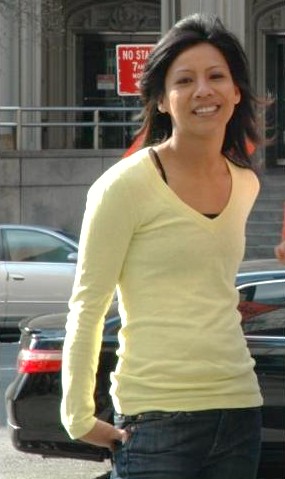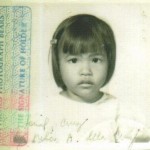This article was originally published in The FilAm, an online magazine for Filipino Americans in New York, where Cristina DC Pastor is editor.
The Tagalog word “ampon” doesn’t signify “being on the fringe” to Lorial Crowder, co-founder of the Filipino Adoptees Network (FAN). “Not familiar with it,” she said, shrugging her shoulders.
While the word literally means “adopted one,” in some Filipino families it could refer to the child given a home and later expected to work as a servant for that household. FAN, the networking portal for Filipino adoptees in the U.S., their parents and the larger adoption community, does not deal often with that specific kind of marginalization, but the issues Filipino adoptees face in the U.S. are just as compelling.
In the following interview, Lorial opens up about feelings of resentment toward her American parents and indifference toward her biological parents.
The FilAm: When you were asking questions about the Philippines, what did you parents tell you?
Lorial Crowder: I wasn’t really asking. I guess that was the hard-headed part of me that wanted to do it on my own. When I first arrived, they had a set of books for me, books about the Philippines. I didn’t look at it for years.
TF: When did you arrive?
LC: 1981. I was 5 years old. A little older than most.
TF: When did you start getting curious about your ethnic roots?
LC: Probably in high school when I went to this rinky-dink school in Ohio. The school was diverse. I befriended someone who is Filipina. She was my gateway Filipina. Her family was very welcoming and always had open arms. First time I went to their home they served up some salmon head soup.
TF: ‘Sinigang?’
LC: Yeah. They introduced me to cuisine. My yearning to learn about Filipino culture and Filipinos in America was really because I was trying to create my identity being a Filipino raised by white Americans.
TF: The process of reconnecting with your Filipino identity, what’s that like?
LC: It’s ongoing. I still continue to learn. I feel like along the way, some of the folks I consider my mentors or my guiding light through my process, they made me feel more courageous. For a while I felt I had to prove myself that I was Filipino enough. Part of it too is because I was raised with white American values…
Read the rest of the interview on The FilAm, an online magazine for Filipino Americans in New York.






